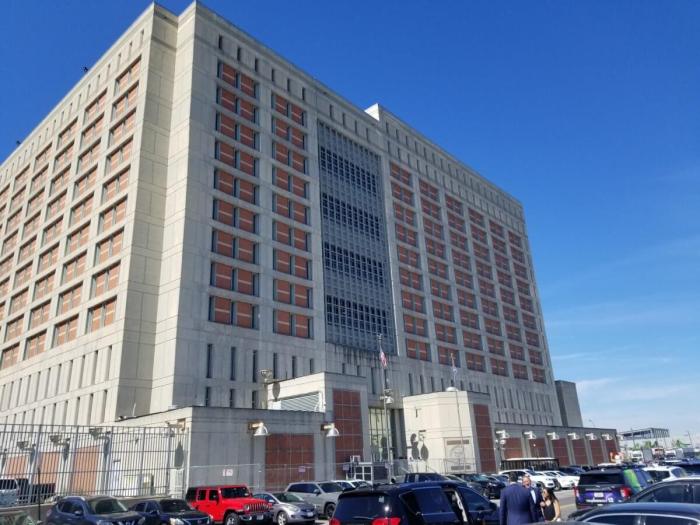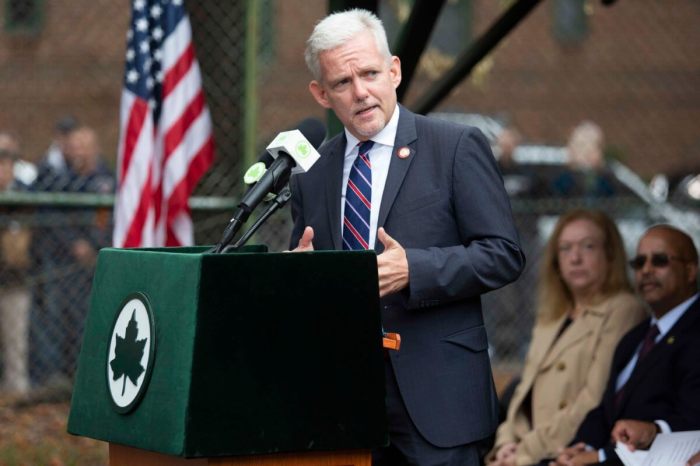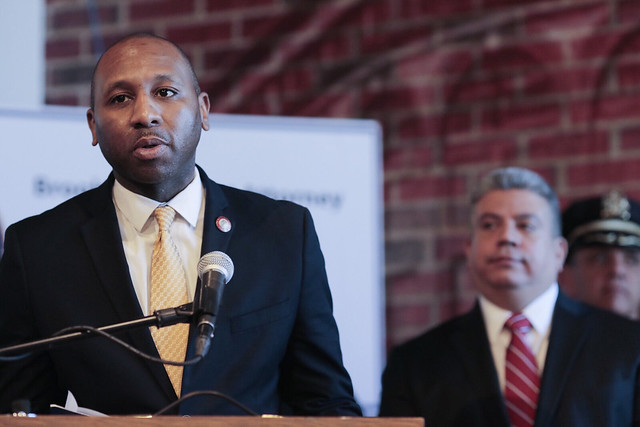Although several thousand absentee ballots still have to be counted, the final results from Tuesday’s Congressional and state Senate primaries are mostly solidified.
The second primary this year, that resulted from a chaotic redistricting process that saw district lines thrown out by state courts and redrawn in late May, was dominated by the high profile races for the 10th and 12th Congressional Districts in Manhattan and Brooklyn. There were also competitive Congressional races upstate and on Long Island, as well as several heated state Senate contests.
Below are five of PoliticsNY’s key takeaways from the August primary.
Turnout was low
Roughly 270,000 people voted in New York City in the August primary, 237,888 in-person and 39,000 through absentee ballots. That’s 12 percent of the 2.3 million registered voters who had competitive races in their districts. That’s slightly down from the 12.3 percent of the 3.6 million eligible voters who casted ballots in the June primary.
Low turnout was expected, as this was the second primary this year with no statewide or national races at the top of the ballot and many New Yorkers out of town on vacation before the start of the school year.
Progressives had a strong showing
While more moderate candidates like Dan Goldman, lead counsel in ex-President Donald Trump’s first impeachment, and U.S. Rep. Sean Patrick Maloney (D-Hudson Valley) won their Congressional contests in the 10th and 17th Districts respectively, progressive candidates did quite well in down ballot races across the city.
Most notably, Democratic Socialists of America (DSA)-backed Kristen Gonzalez handily won the open state Senate District 59 seat with nearly 60 percent of the vote over former City Council member Elizabeth Crowley and former journalist and political surrogate Nomiki Konst, who dropped out of the race to support Gonzalez a little over a week before election Day.
“A million dollars can’t buy a movement,” Gonzalez said on Twitter on Tuesday night. “Thank you.”
In the Bronx, incumbent state Senator Gustavo Rivera narrowly defended his seat from Bronx Democratic Party-backed challenger Miguelina Camio, with a 51.4-46.8 percent margin. Rivera chairs the upper chamber’s Health Committee and has long championed progressive policies like the New York Health Act, which would institute a single-payer health care system in New York.
“When you come at the king, you best not miss,” Rivera said at his watch party inside the Bronx Alehouse, referencing a line from HBO’s The Wire character Omar Little. “After 12 years (in the Senate), I’m not going to forget who I do this for (or) who I work for. I work for y’all (his constituents).”
Additionally, state Senator Robert Jackson staved off a challenge for his upper Manhattan seat from newcomer Angle Vasquez, who was backed by U.S. Rep. Adriano Espaillat – a power broke in that part of Manhattan and the west Bronx. Jackson won by 57 percent to Vasquez’s 32.
In Brooklyn, socialist one-term state Senator Jabari Birsport beat back Rev. Conrad Tillard with a landslide victory, nabbing a sizable 70 percent of the vote to Tillard’s measly 15.
Eric Adams’ candidates didn’t do great
Along the same theme, three of those progressives overcame candidates backed by Mayor Eric Adams – Crowley, Camilo and Tillard.
In the weeks leading up to the primary, Adams made a point of endorsing candidates he believed could push his public safety agenda in Albany: namely making further roll backs to 2019 reforms that eliminated cash bail for most non-violent misdemeanors and some felonies. The losses of some of Adams key endorsees somewhat dampen his claim to being the “face of the new Democratic Party” made after his mayoral victory over left-leaning challenger Maya Wiley last year.
Camille Rivera – a consultant on Gustavo Rivera’s campaign – told Politico New York Camilo’s loss shows how out of touch Adams is with his constituents.
“He cut … our public school budget, endorsed against local elected officials with a history of delivering for their communities [and] last night, voters made clear just how out of step he was — both with his constituents and with reality,” Rivera told Politico.
Adams’ campaign advisor Evan Thies, however, pushed back on the idea that the mayor’s primary picks performed poorly, pointing to his five endorsees who won their races.
“Five of the eight senate candidates the mayor endorsed won after most of the assembly candidates he endorsed won. The three most competitive democratic primaries for congress also resulted in wins for candidates who support the mayor’s crime agenda,” Thies said in an emailed statement.
The vast majority of New Yorkers agree with the mayor on the most pressing issues such as crime. When New Yorkers come out to vote, they elect moderate candidates like the mayor. He follows his conscience in who he supports — and will every time. The lesson of this very low turnout election is something all should agree on: we have to motivate voters to get out and vote,” he added.
Two of Adams picks, central Brooklyn state Senator Kevin Parker and Jessica Scarcella-Spanton – who’s running for the Staten Island and southern Brooklyn seat state Senator Diane Savino is vacating – overcame left-wing challengers.
Dems may have hope for November
Ulster County Executive Pat Ryan’s narrow victory over Dutchess County Executive Marc Molinaro in the special election to fill the seat vacated by Lieutenant Governor Antonio Delgado may mean Democrats have a better than expected chance of holding onto their House majority in November.
Ryan won by a slim 52 to 48 percent margin in a race widely considered a tossup – many believed the swing seat would fall into Republican hands after Delgado’s exit. The county executive and combat veteran made abortion access the primary issue of his campaign in the wake of the U.S. Spreme Court decision overturning Roe v. Wade. He contrasted his belief in national abortion rights with Molinaro’s stance that it should be left up to individual states to decide.
Ryan also painted the election as a referendum on voting rights and Democratic principles.
“Choice was on the ballot. Freedom was on the ballot, and tonight choice and freedom won,” Mr. Ryan said on Twitter early Wednesday. “We voted like our democracy was on the line because it is.”
Ryan will serve out the remaining four months of Delgado’s term in the 19th District, while he’ll also be running for reelection to a full term in the neighboring 18th District – where he’s running because redistricting changed the district he lives in.
New York Times endorsements still powerful
All three of the congressional candidates endorsed by the Gray Lady’s editorial Board – Goldman, Maloney and U.S. Rep. Jerry Nadler (D-Manhattan, Brooklyn) – a little over a week before the primary, won their respective contests.
In particular, the Paper of Record’s stamp of approval was a boon to Goldman in the fierce contest for the 10th Congressional District, where he narrowly overcame Assembly Member Yuh-Line Niou (D-Manhattan) and sitting Rep. Mondaire Jones (D-Rockland, Westchester Counties). Prior to the Times’ endorsement Goldman, who gained national fame presenting Congressional Democrats’ first impeachment case against Trump and as an MSNBC commentator, consistently polled in the top-eiter of candidates but wasn’t shown in first place.
But the Times’ backing in a district where they have a high volume of subscribers seems to be what gave Goldman the boost he needed to come out on top.
It may have also helped out Nadler – a 30-year incumbent – in his race against longtime colleague U.S. Rep. Carolyn Maloney, where Nadler won with a 30-point lead.









